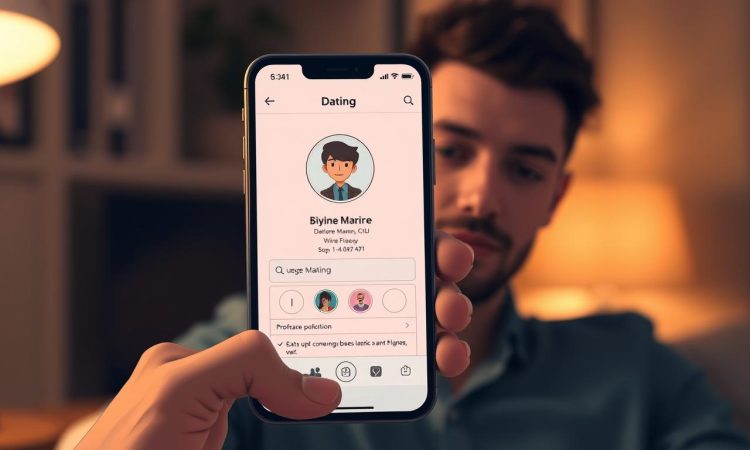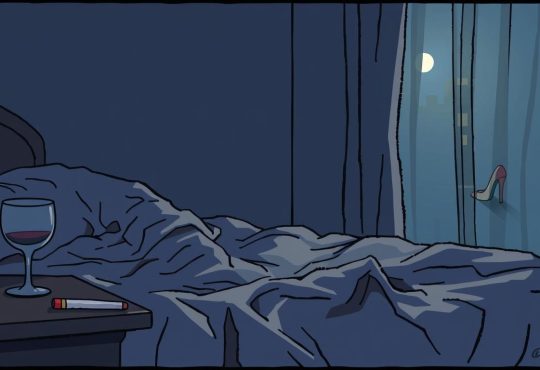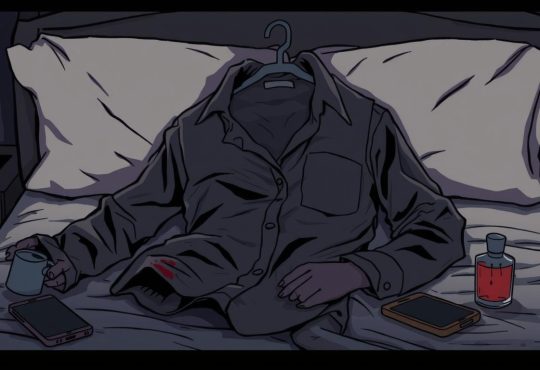
Have you ever wondered what drives someone to explore online dating while in a committed partnership? It’s a question that challenges common beliefs about loyalty and modern love. Let’s dive into this intriguing phenomenon.
Online dating has become a common “thing” in today’s digital age. Even those in relationships sometimes find themselves drawn to these platforms. Reasons range from seeking an ego boost to battling boredom or simply falling into a habit.
Studies show that emotional unavailability and attachment anxiety play significant roles. For some, creating a dating “profile” offers a way to test the waters or seek reassurance. This behavior often contrasts sharply with their personal relationship dynamics.
Understanding the “way” technology shapes modern dating is crucial. Recent research highlights how dopamine-driven rewards and cultural norms influence these actions. Let’s explore the multifaceted nature of dating in the digital era together.
On this Page:
- 1 Introduction: The Online Dating Dilemma
- 2 Psychological Factors Fueling Online Dating
- 3 why do guys go on dating sites when in a relationship
- 4 Curiosity, Boredom, and Social Influences
- 5 Defining Dating and Relationship Boundaries
- 6 Real-Life Perspectives and Personal Stories
- 7 Impact on Trust and Commitment in Relationships
- 8 Conclusion
Introduction: The Online Dating Dilemma
The digital age has reshaped how we approach love and commitment. With millions of users on platforms like Bumble and Tinder, the way we connect has evolved. Yet, this shift brings challenges, especially when it comes to mixing online behavior with established relationships.
Modern dating trends show a significant rise in the use of dating apps. Over 20 billion matches have been made on Tinder alone since its launch. These platforms offer convenience and endless options, but they also blur the lines between curiosity and commitment.
Many individuals, particularly men, continue to explore dating sites even while in a relationship. This behavior often stems from curiosity, habit, or the desire for validation. The contrast between the “self” presented online and real-life personas can be striking.
Understanding these dynamics is essential. In the coming sections, we’ll delve deeper into the psychological factors, social influences, and real-life stories that shape this modern dilemma. Together, we’ll uncover what drives these actions and how they impact relationships.
Psychological Factors Fueling Online Dating
Exploring the psychology behind online behavior reveals fascinating insights into modern relationships. Many individuals continue to use a dating site even while committed, driven by deeper emotional and psychological needs. Understanding these factors can help us navigate the complexities of modern love.
Fear of Commitment and Vulnerability
Fear of commitment often leads individuals to seek validation outside their relationship. A dating site offers a low-risk option to explore connections without fully investing emotionally. This behavior can stem from unresolved insecurities or past experiences that make vulnerability challenging.
Emotional unavailability plays a significant role in this behavior. Research by Leslie Parrott highlights how mixed signals and unclear boundaries can drive someone to seek clarity elsewhere. A simple conversation with a partner might reveal these underlying issues, but many avoid it due to discomfort.
The Need for Ego Boosts
At times, individuals turn to dating platforms for an ego boost. A woman or man might feel neglected or undervalued in their current relationship, seeking reassurance through external validation. Dopamine-driven rewards from matches and messages can temporarily fill this emotional gap.
Understanding these psychological forces is key to improving relationship dynamics. By addressing these needs openly, couples can build stronger, more trusting connections.
why do guys go on dating sites when in a relationship
The truth behind this behavior often lies in a mix of curiosity, validation, and habit. Many individuals find themselves drawn to dating apps, even when in a partnership. This raises the question: what drives this seemingly contradictory behavior?
Real user stories from forums and studies shed light on this phenomenon. One individual shared how they logged into a dating app out of boredom, only to realize it became a daily habit. Another mentioned the thrill of receiving notifications, which served as an ego boost. These stories highlight the addictive nature of dating apps.
Research shows that casual app engagement differs from purposeful use. Some log in briefly to browse, while others actively seek connections. The constant stream of notifications can create a dopamine-driven cycle, making it hard to disengage. This behavior often stems from deeper emotional needs, such as seeking reassurance or validation.
The Ashley Madison incident serves as a stark example of how dating apps can impact trust. The data breach revealed millions of users seeking connections outside their relationships. This real-world event underscores the implications of app usage on commitment and loyalty.
Understanding these dynamics is crucial. Dating apps can blur the lines between curiosity and betrayal, challenging relationship security. We encourage readers to reflect on their digital behavior and its impact on their partnerships. Open conversations about app usage can help build stronger, more trusting connections.
Curiosity, Boredom, and Social Influences
Curiosity often leads people to explore new experiences, even in unexpected ways. For many, logging into a dating platform becomes a casual action driven by boredom or habit. It’s not always about seeking a new connection but rather filling a momentary void.
Exploring Curiosity and Habitual Use
For some, habitual use of dating apps offers a psychological break from daily routines. A man might scroll through profiles out of curiosity, not intending to take any serious action. This behavior often stems from a desire for novelty or a quick distraction.
Studies show that habitual app use can become a coping mechanism. The dopamine rush from notifications or matches provides temporary relief from boredom. This cycle can make it hard to break away, even when in a committed relationship.
Peer Pressure and Comparative Behavior
Social influences also play a significant role. Friends or peers discussing their online experiences can spark curiosity. A man might feel pressured to explore these platforms to keep up with social norms or compare his own relationship to others.
Peer pressure can lead to decisions that seem out of character. For instance, someone might create a profile after hearing a friend’s success story. This behavior highlights how external influences can shape our actions, even in matters of love.
Understanding these factors helps us navigate the complexities of modern relationships. By addressing curiosity and social pressures openly, we can build stronger, more trusting connections.
Defining Dating and Relationship Boundaries
Establishing clear boundaries in relationships is essential for fostering trust and mutual respect. Boundaries help define what is acceptable and what isn’t, creating a foundation for healthy dynamics. Yet, expectations around these boundaries can vary widely between individuals.
Understanding Commitment Expectations
Commitment means different things to different people. For some, it’s about exclusivity, while others may view it as emotional loyalty. These differing perspectives can lead to misunderstandings if not openly discussed. Relationship expert Esther Perel emphasizes the importance of aligning expectations early on to avoid conflicts.
The Role of Communication
Setting boundaries day by day requires clear communication. Couples should regularly check in to ensure both partners feel valued and secure. Studies show that 70% of relationship experts agree that open dialogue about boundaries is crucial for mental health and self-esteem.
Feelings of Insecurity and Ego
Feelings of insecurity or a bruised ego can blur the lines of what constitutes disloyal behavior. For instance, someone might create an online profile seeking validation, not realizing it undermines their partner’s trust. Addressing these feelings openly can help rebuild confidence and strengthen the relationship.
Aligning Online and Real-Life Identities
Some individuals struggle to align their online name or identity with their real-life commitments. This disconnect can lead to confusion and mistrust. By being transparent about online activities, couples can bridge this gap and foster deeper understanding.
Practical Steps for Couples
To build a stronger connection, couples can start by discussing their boundaries openly. Setting clear expectations and respecting each other’s needs can prevent future resentment. Remember, boundaries are not restrictions but tools for creating a healthier, more fulfilling partnership.
Real-Life Perspectives and Personal Stories
Personal stories from online forums offer a unique window into the complexities of modern relationships. These narratives reveal the diverse reasons individuals continue to engage with dating platforms, even while committed. By exploring these experiences, we gain valuable insights into the emotional and psychological factors at play.
Insights from Online Forums and Q&A Experiences
Online forums and Q&A threads are rich sources of information about relationship dynamics. Many users share their experiences, often highlighting mismatched expectations. For instance, one individual explained how they maintained a profile for validation, not realizing it hurt their partner’s trust.
Another user described their habit of logging into apps out of boredom, which later became a daily routine. These stories underscore how casual engagement can evolve into something more significant. The word choices in these narratives often reveal underlying insecurities or unmet emotional needs.
Lessons Learned from Personal Narratives
Personal narratives teach us about the collective thought process behind these actions. Many users justify their behavior with phrases like “just browsing” or “curiosity got the best of me.” These justifications often mask deeper issues, such as fear of commitment or a need for reassurance.
By analyzing these stories, we see patterns of behavior that challenge relationship security. Open communication and self-awareness are key to addressing these issues. Learning from others’ experiences can help us navigate our own relationships with greater understanding and empathy.
Impact on Trust and Commitment in Relationships
Trust is the foundation of any strong relationship, but digital behavior can sometimes shake that foundation. In today’s connected world, our online actions often blur the lines between curiosity and commitment. Understanding how these actions affect trust is essential for maintaining healthy partnerships.
How Digital Behavior Challenges Relationship Security
Constant digital presence can undermine the quality of relationship “life.” Research by Finkel et al. shows that frequent app usage can create emotional distance between partners. A simple scroll through profiles might seem harmless, but it can erode trust over time.
Witnessing a partner’s online activity can also affect a “friend” circle’s perception of the relationship. Friends may notice inconsistencies or question the couple’s commitment. This external scrutiny can add pressure and strain the bond between partners.
Despite being in a committed relationship, some individuals maintain an “interest” in digital engagement. This behavior often stems from curiosity or the need for validation. The dopamine “boost” from matches and messages can temporarily fill emotional gaps, but it conflicts with offline commitment.
Relationship experts offer valuable “insight” into this phenomenon. They emphasize that open communication is key to addressing these challenges. By discussing boundaries and expectations, couples can navigate digital temptations together.
Digital behavior also challenges traditional definitions of fidelity. For example, creating a profile or engaging in online conversations can feel like a betrayal, even if no physical infidelity occurs. These actions highlight the need for modernized relationship boundaries.
To rebuild trust, couples can take practical steps. Setting clear guidelines for app usage and prioritizing offline connections can strengthen the relationship. Remember, trust is built through consistent actions and mutual understanding.
We encourage open dialogue about digital behavior. By addressing these issues together, couples can create a stronger, more secure partnership. Trust and commitment thrive when both partners feel valued and respected.
Conclusion
Navigating modern relationships requires clarity and open communication. Throughout this article, we’ve explored the complexities behind certain behaviors and their impact on trust. Honest “talk” between partners is essential to resolve uncertainties and build stronger connections.
Reflect on your own situation and trust your “head” rather than assumptions. Understanding personal motivations can help address underlying issues. Clear boundaries and mutual respect are key to maintaining a healthy partnership.
Every relationship can benefit from deeper insight and honest discourse. If you’re facing challenges, seek advice or join a supportive community. Together, we can navigate modern relationship dynamics in a healthy and fulfilling way.










